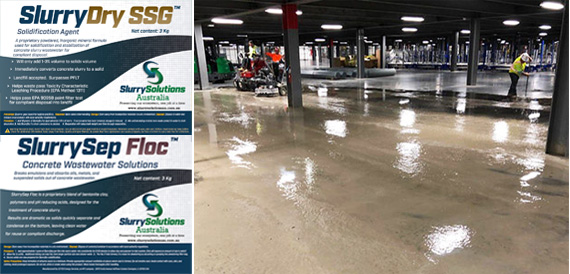
27/5/2019, 12:00PM
When it comes to grinding and polishing concrete, many of you know that it can be done wet, or dry.
Why choose wet grinding over dry grinding?
The answer is really quite simple. Concrete grinding can expose workers to an undesirable level of crystalline silica dust known to cause serious diseases such as silicosis and possibly lung cancer. Silica dust is generated and becomes airborne in workplace mechanical processes that involve crushing, drilling, grinding, sawing or polishing stone and other man-made products such as, concrete. The respirable silica dust particles are small enough to penetrate deep into the lungs, causing irreversible lung damage.
How can we prevent this?
Wet grinding has proven extremely effective for minimising workers' silica exposure levels. The use of enough water will allow the grinding process to be performed without generating any dust. Water serves to wet silica dust particles before they can actually become airborne, and is an effective way to control the release of dust in the air. The workers exposure is in turn reduced, and the dangerous diseases can be prevented.
What about all the slurry wastewater
Although using water does ideally help prevent the worker from being exposed to large amounts of hazardous dust particles, it leaves a slurry like paste which needs to be cleaned up and disposed of appropriately. In the past, efficient disposal of slurry waste was an issue given the environmental concern. However now there is an easy way to not only avoid the associated dangers of the dry process, but also dispose of the slurry wastewater efficiently and effectively without harming the environment.
This is where our SlurryDry SSG and SlurrySep Floc products come into play. Contact us today to find out how we can help you find better ways to manage and dispose of concrete slurry wastewater legally, without compromising your health.
Contact Us to find out more.
2 Comments
David Adrian
Years ago, I got hurt really badly when I used Hydrochloric Acid to clean up some brick repair work on my barbecue area. This time I used SlurrySafe AR, and there was no danger at all. Didn't even have to use gloves.
Allex Merry
This SlurrySafe product almost sounds too good to be true. But we used it ourselves and I saw first hand that it works exactly like they show on the demo videos. And it really was not harmful to our skin. Thank you Slurry Solutions Australia.
Leave a Comment